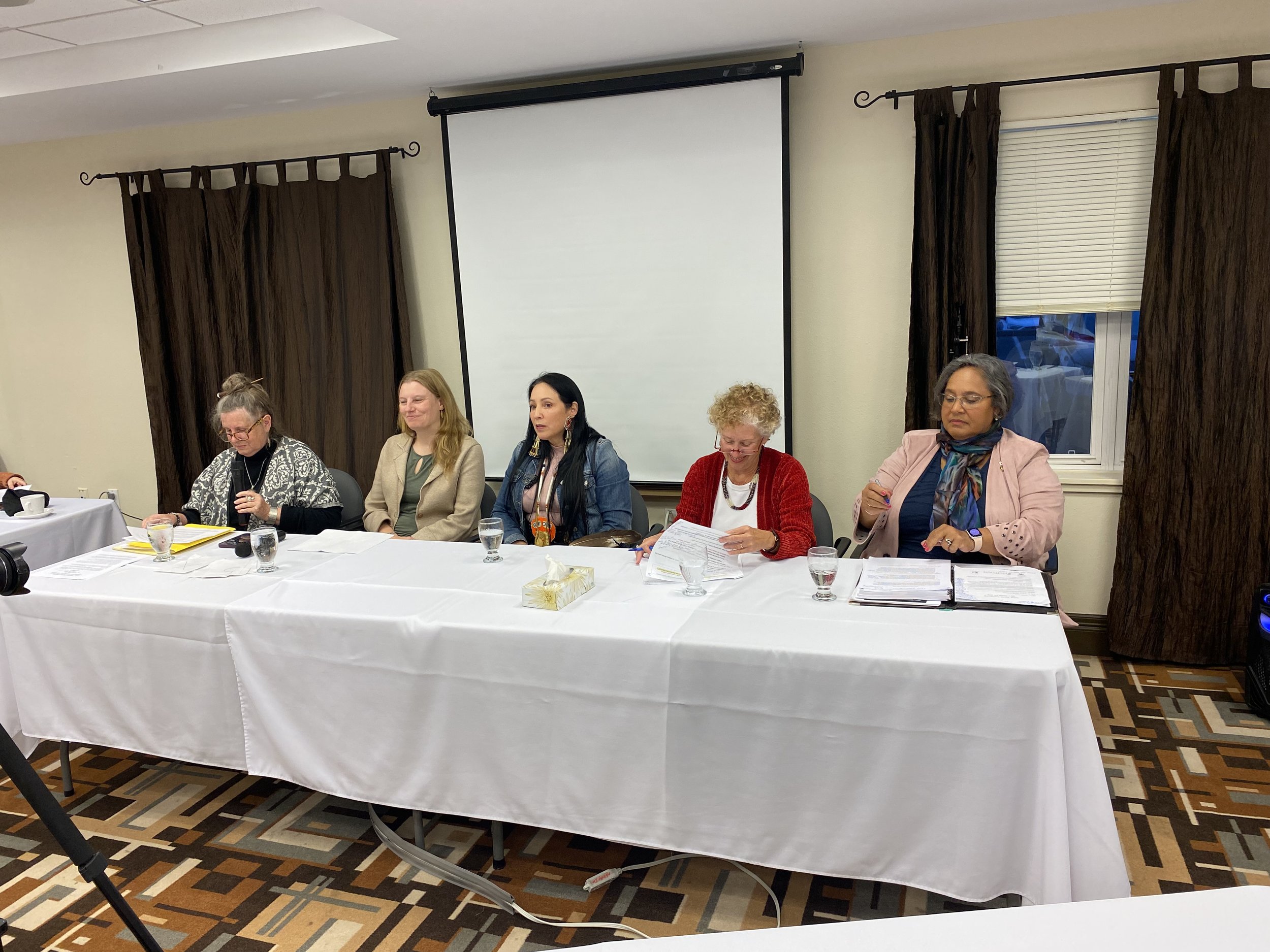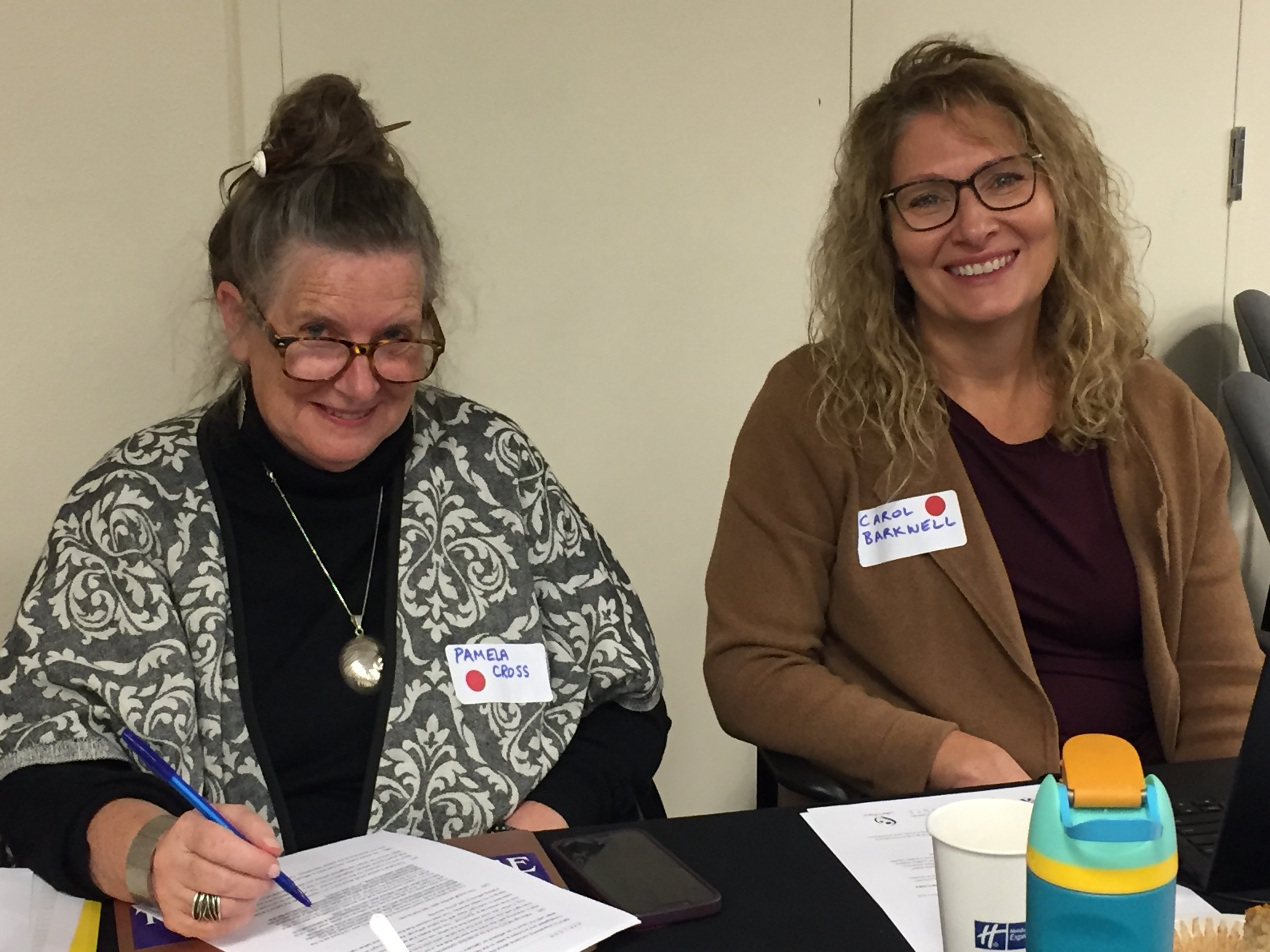Why Here? Why Now? Why Me?
Connecting the dots in law reform, intimate partner violence and the Mass Casualty Commission recommendations
Wednesday, October 18 and Thursday, October 19, 2023 - New Glasgow, Nova Scotia
This two-day conference brought service providers together across the gender-based violence (GBV) sector to explore current issues in law reform at the juncture of intimate partner violence, recent changes and issues in family law, and recommendations emerging from the Mass Casualty Commission.
The conference was a collaboration between:
• Luke’s Place Support and Resource Centre in the Durham Region of Ontario, through their WAGE funded project, “Advancing gender-based violence issues in the Canadian legal system through reform, advocacy and collaboration.”
• NS Access to Justice and Law Reform Institute and Be the Peace Institute through the WAGE-Funded project “No Longer on My Own”.
“No Longer On My Own” explores the challenges faced by survivors of IPV navigating the family justice system. In November 2022, the first Summit invited service providers and survivors to learn about barriers and challenges, as well as best practices and innovative programs in Nova Scotia.
This event served partially as a next Summit for this project, offering updates and resources, and particularly with the release of the Mass Casualty Commission report, it also offered a forum to understand the convergence of their recommendations with NOLOMO’s current work.
But this year also included the exciting addition of a partnership with Luke’s Place, an impressive organization with a 20 year history of providing family law legal assistance to survivors fleeing abuse, supporting them through family law matters and proceedings, while advocating nationally for law reform. Through their WAGE-funded project, they have developed and offered online trainings for frontline workers across the country to increase their capacity to engage in feminist law reform advocacy and with the media. They are doing a select number of conferences in-person around the country, and through Be the Peace Institute created the connection needed to bring their expertise to Nova Scotia for those doing direct GBV work.
The resulting collaborative conference for 93 frontline service providers facilitated the opportunity to:
Explore the issues that arise at the intersection of family law and recommendations from the Mass Casualty Commission, including the absence of child protection and family law in the final recommendations,
Better understand the influence of the social determinants of health and how they both create and maintain the conditions of violence as well as contribute to systemic inequity and barriers to justice,
Engage in discussions on the place of child protection services in a public health approach to addressing intimate partner violence,
A primary prevention approach to intimate partner violence, a whole of society/public health approach and grounding in upstream work instead of our over-reliance on the reactive, incident-based justice response,
And an intentional centring of the perspectives of the most marginalized and harmed by these system responses to GBV.
Morning panel (L-R): Shelley Curtis Thompson, ED Pictou Co. Women’s Centre; Michelle Ferris, Aberdeen Health; Jennifer Cox, Dal Legal Aid + MMIWG; Lana MacLean, N. End Community Health Centre (missing from photo: moderator - Ann de St. Croix, THANS Coord)
Afternoon panel (L-R): Moderator - Ilana Luther, ED, A2JLRI; Shelley Hounsell-Gray, family lawyer; Ashley Avery, ED, Coverdale; Charys Payne, African NS Justice Institute (missing from picture: Michelle Cuvelier, Mi’kmaw Native Friendship Centre, Jordan’s Principle)
Evening panel: (L-R) Moderator - Pam Cross, Luke’s Place; Tiffany Butler, National Association of Women and the Law; Michelle Peters, Etli-Npisimkek Counselling and Consulting Services; Sue Bookchin, Be the Peace Institute, Shawna Paris-Hoyte, Dalhousie Legal Aid
Day 2 offered interactive training sessions on:
Law reform advocacy and media engagement skills and opportunities to build confidence through small group activities working with live issues in Nova Scotia
New knowledge, skills and confidence to lead relevant law reform efforts and engage effectively with the media in their communities and across the province.
We were happily surprised to meet and exceed our anticipated audience of 65 with a crowd of 93 diverse front line service providers across the GBV sector including immigrant settlement services, Indigenous child protection and legal navigation, transition house and women centre staff.
Some of the unexpected outcomes from this two-day gathering were the degree of enthusiasm and readiness for a new way of GBV prevention and response through collaboration and joint advocacy, as well as people being just so happy to be together in a safe space to uncover patterned points of tension in our system reactions as well as opportunities for new ways of responding to GBV. There was so much mutual respect and care in the room, it was an honour to be amidst it.
Pam Cross & Carol Barkwell of Luke’s Place
Pam Cross, Advocacy & Legal Director from Luke’s Place, in her moderation of our evening panel, had this quote to share about hope which felt like an overriding message of the conference.
““a bias towards the vulnerability of hope is a gift; a gift that lets us think the world can be better, to believe that what we do can actually make some kind of change. Hope, breaks into a heart that’s broken, blowing all the doors wide open.””
Our amazing project team (L-R): Carol Barkwell, ED Luke’s Place; Emily Tallon, Access to Justice & NS Law Reform Institute; Stacey Godsoe, BTPI; Sue Bookchin, BTPI; Pamela Cross, Advocacy Director; Ilana Luther, ED A2JLRI










